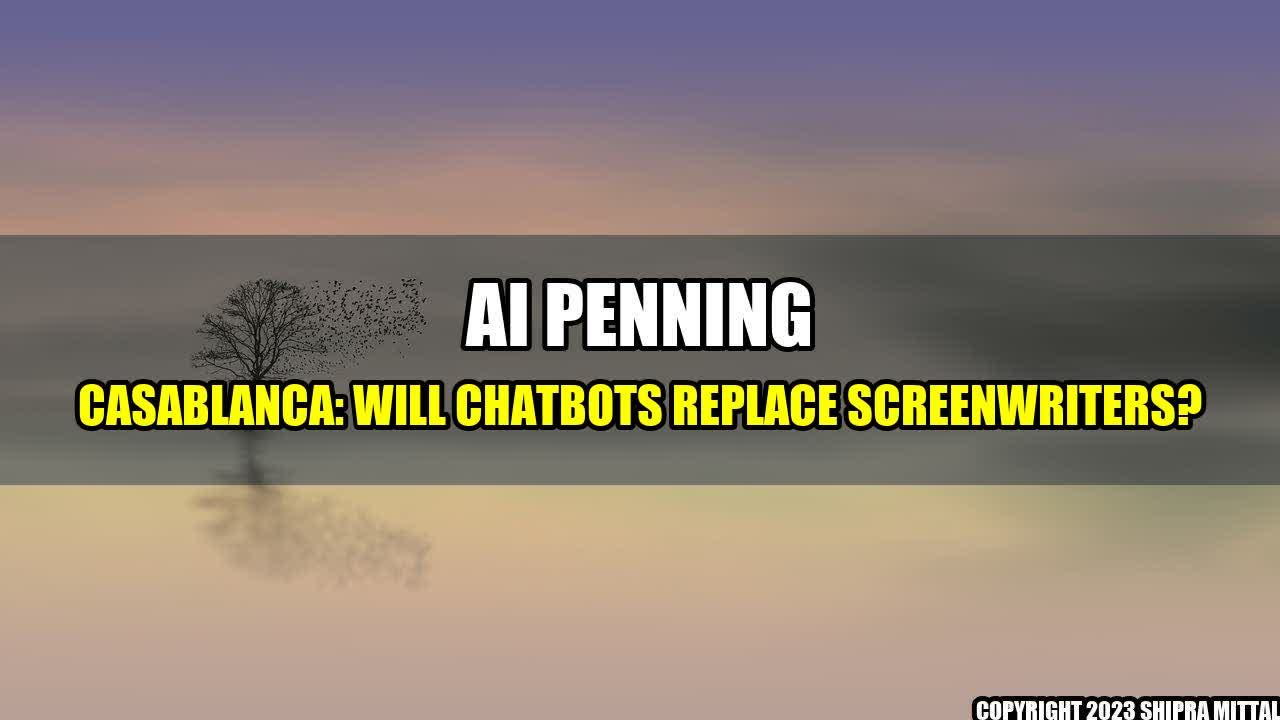
Once upon a time, Casablanca, a timeless classic Hollywood film, was penned by a team of talented screenwriters. However, with the advent of artificial intelligence (AI) technology, the role of screenwriters in the movie-making industry seems to be in jeopardy. ChatGPT, an AI language model, has recently made waves in the media industry by writing a Santa Fe New Mexican article that was published without any human intervention, raising the question: Can AI pen the next Casablanca?
Real-life examples suggest that the answer is a resounding yes. For instance, OpenAI recently created an AI language model called GPT-3, which can write highly contextualized and grammatically correct text that closely mimics human writing. GPT-3 has already penned articles for The Guardian and even wrote a blog that trended on Hacker News.
Moreover, AI is being used to generate scripts for TV shows and advertising campaigns. For example, Israel-based company, Axiom Images, has used AI-powered scripts to create advertisements. The AI technology used natural language processing (NLP) algorithms to analyze the audience data to create the script, which led to strong consumer engagement.
Notably, the largest companies in the tech industry are investing heavily in AI-powered writing technologies. Google has invested $3.9 billion in a startup called OpenAI, which could transform the way we communicate, and Microsoft's GPT-3-powered AI writing assistant, Ideas, has been integrated into Microsoft Word.
Despite these advancements, it is important to recognize that AI-powered writing technology is still in its infancy. Machines can write grammatically correct sentences, but they miss the context and emotional intelligence that human touch could provide. The art of storytelling is still a human trait that cannot yet be replicated by machines. Hence, while AI-powered writing technology can produce quick, efficient, and personalized content, the value of human storytelling should not be ignored.
In conclusion, AI language models like ChatGPT, OpenAI, and GPT-3 have already made significant strides in the writing industry by generating highly contextualized and engaging text, even completely replacing human writers for some content. Despite its promise, however, AI technology will never replace the artistry of human storytelling. Instead, it should be seen as a powerful tool that can be used to amplify human creativity.
References:
1. https://www.theguardian.com/commentisfree/2021/apr/28/robot-wrote-this-article-gpt-3
2. https://www.axiomimages.com/blog-posts/ai-and-the-future-of-storytelling
3. https://www.theverge.com/2020/5/26/21269528/gpt-3-explainer-openai-language-model-examples-science-fiction
4.https://techcrunch.com/2020/05/14/gpt-3-a-robot-wrote-this-entire-article-are-you-scared-yet/
5. https://www.forbes.com/sites/forbestechcouncil/2021/02/22/ai-generated-content-is-not-an-artist/?sh=788d154e212c
Hashtags: #AI #Writing #StoryTelling #OpenAI #GPT3 #Creativity #ChatGPT
Category: Artificial Intelligence, Technology, Writing.
Akash Mittal Tech Article
Share on Twitter Share on LinkedIn